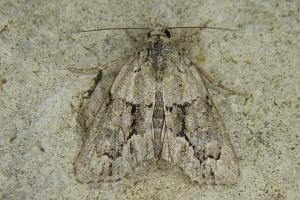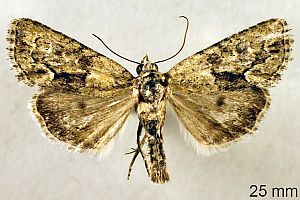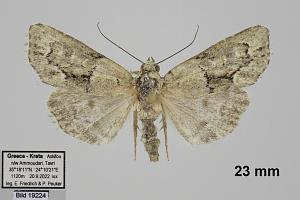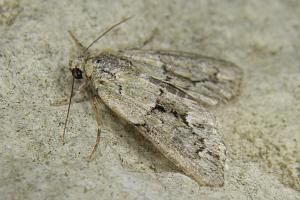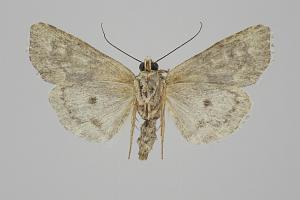Länder:

 +1Kontinente:EU
+1Kontinente:EU


 +1Kontinente:EU
+1Kontinente:EUNeues Layout der Navigation (Beta Test)
2. Diagnose
2.1. Männchen
1-2: ♂, Griechenland, Kreta, Daten siehe Etiketten (fot.: Michel Kettner), coll. ZSM, Gottfried Behounek
2.2. Weibchen
3. Weitere Informationen
3.1. Etymologie (Namenserklärung)
Svendsen & Fibiger (1998: 470): “This new species in only recorded in the white mountains (Omalos) on western central Crete. The name is derived from the type locality.”
3.2. Faunistik
Die östliche Schwesterart von Cryphia simulatricula und Cryphia lusitanica ist ein Endemit der westlichen Gebirgsregion Kretas (Fibiger et al. 2009).
3.3. Typenmaterial
Svendsen & Fibiger (1998: 469) beschrieben die Art nach einem einzigen ♂: “Holotype: male: Greece, Crete, Omalos mts., Kallergi, 1600 m, 5.viii.1991, leg. & coll. P. Svendsen, genit. prep. 2913 M. Fibiger.”
3.4. Literatur
- Fibiger, M. & P. Svendsen (2001): The female (allotype) of the Cretan Cryphia omalosi Svendsen & Fibiger, 1998 (Noctuidae, Bryophilinae). — Esperiana 8: 654.
- Erstbeschreibung: Svendsen, P. & M. Fibiger (1998): New endemic taxa from Crete: Cryphia omalosi, sp. n. and Chersotis larixia idai, subsp. n. (Noctuidae, Bryophilinae, Noctuinae). — Esperiana 6: 469-471.


